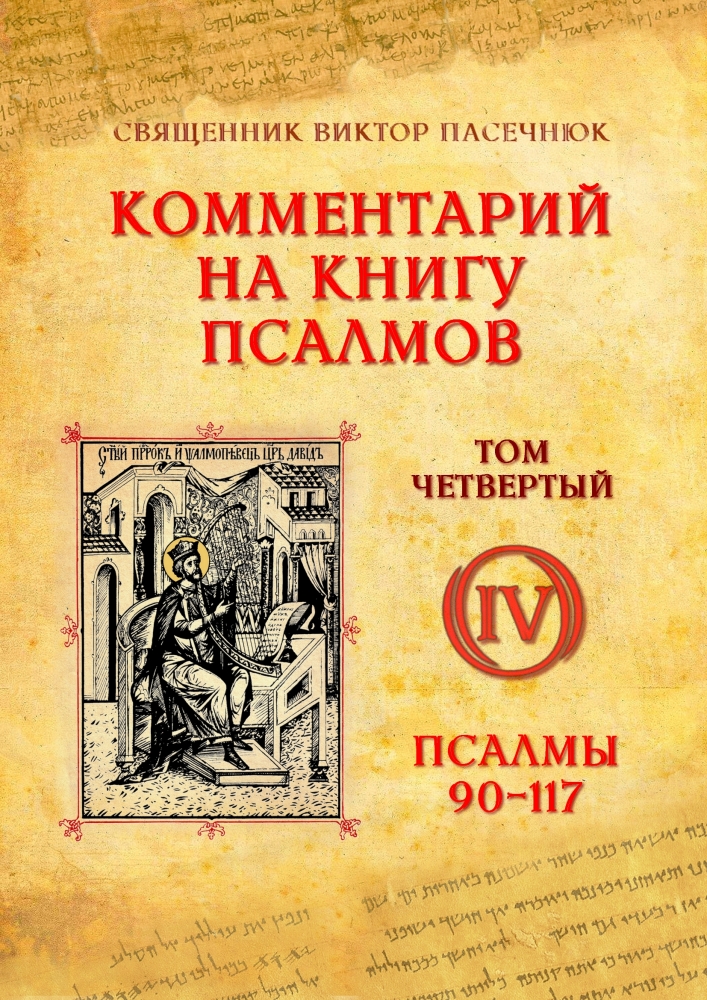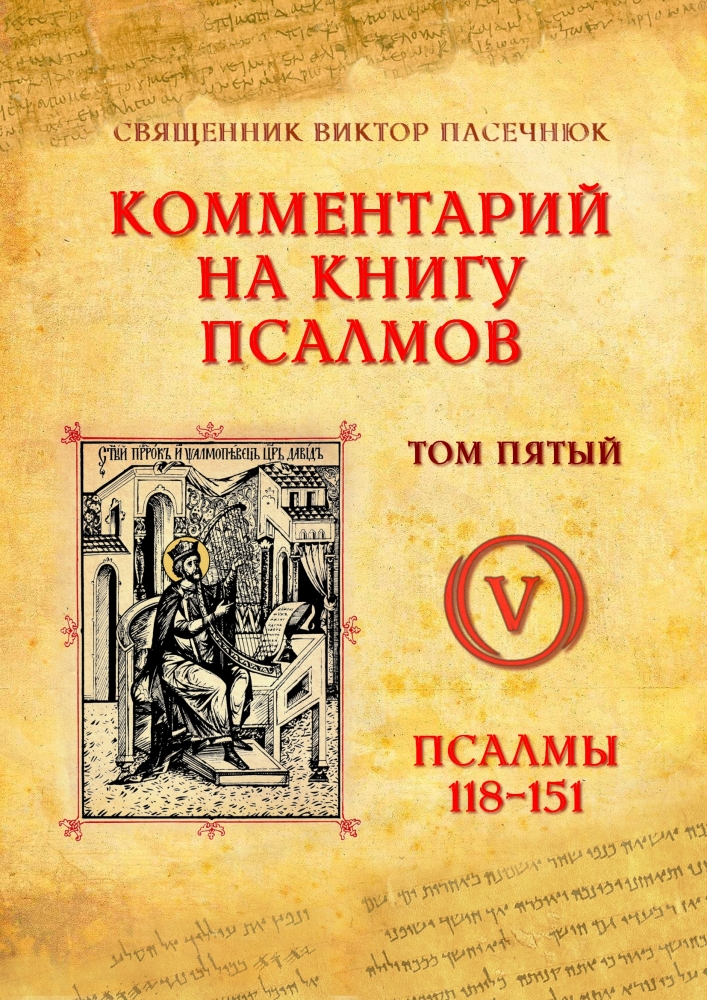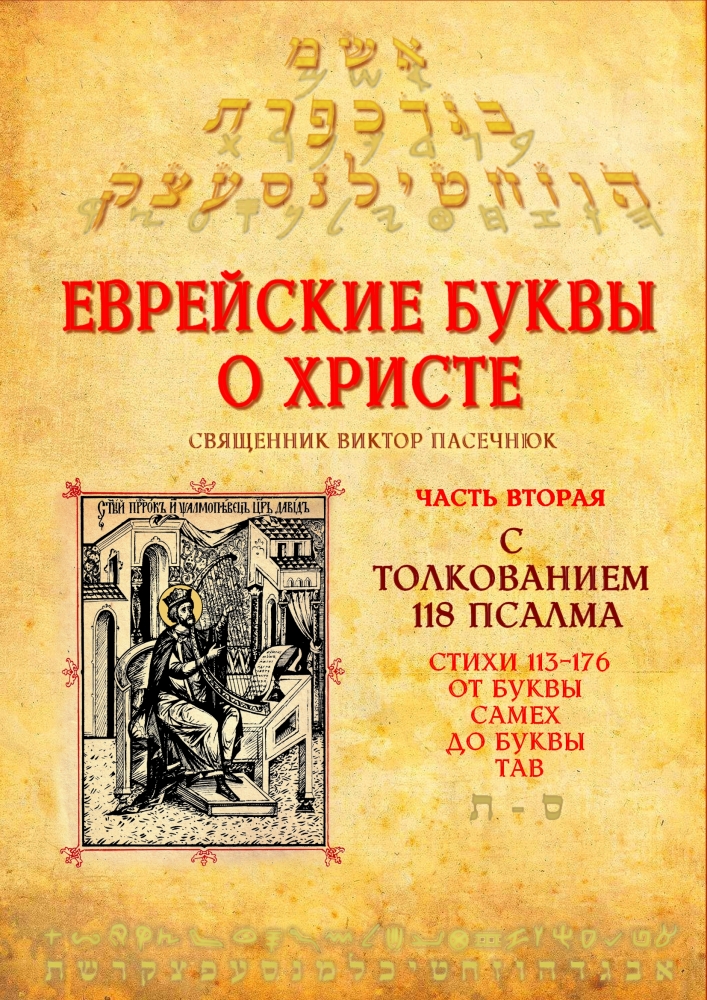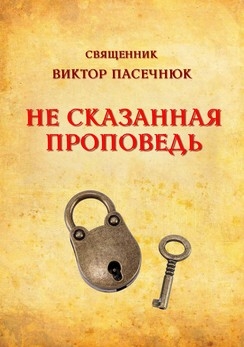Новости
- Обновление книги "О Царстве Божьем" v.2025-06
- 11 Июнь 2025
Обновление книги "О Царстве Божьем" v.2025-06 ссылка на скачивание
- 4 том "Комментарий на книгу псалмов" Пс. 90-117
- 06 Сентябрь 2021
Окончен и опубликован 4 том "Комментарий на книгу псалмов" Пс. 90-117
скачать последнюю версию книги
аудиоуроки в формате МР3: скачать здесь

- Все новости
Объявления
- Обновление книги "О Царстве Божьем" v.2025-06 ссылка на скачивание
- 06 Сентябрь 2021
Обновление книги "О Царстве Божьем" v.2025-06
гугл-диск: скачать здесь
яндекс дикс: скачать здесь

- Вышел 5 том. "Комментариев на Псалмы"
- 07 Январь 2020
Окончен и опубликован 5 том "Комментарий на книгу псалмов" Пс. 118-151
скачать последнюю версию книги
аудиоуроки в формате МР3: скачать здесь
Опубликованы в новой редакции 1 и 2 том книги "ЕВРЕЙСКИЕ БУКВЫ О ХРИСТЕ" версии 2019
Первый том «Еврейские буквы о Христе» от Алеф до Нун – 373 стр. = 16,3 мб.
Второй том «Еврейские буквы о Христе» от Самех до Тав – 387 стр. = 30,4 мб.
Также для удобства поиска, по желанию некоторых читателей сделал версию двухтомника в одном файле = 44,8 мб.
Также ссылку с аудиоуроками по этой книге. Скачать можно здесь:
- Все объявления
МОЙ ЙОВЕЛЬ
Словом יובל = «ЙОВЕЛЬ», в Торе назван последний год пятидесятилетнего цикла. Это слово стало основой всем известного слова «юбилей»
8 И насчитай себе семь субботних лет, семь раз по семи лет, чтоб было у тебя в семи субботних годах сорок девять лет;
10 и воструби трубою …и освятите пятидесятый год и объявите свободу на земле всем жителям ее: да будет это у вас юбилей = יובל = ЙОВЕЛЬ … (Лев.25:8-10)
Для лучшего осмысления заповеди ЙОВЕЛя нужно посмотреть на этимологию этого слова.
Значение слова יובל = ЙОВЕЛЬ – это бараний рог (рог для трубления),[1] баран.[2] Раши пишет так о названии пятидесятого года: «Этот год отличается от других лет тем, что ему дано особое имя. А как он называется? «ЙОВЕЛЬ» в связи с трублением в шофар. Также этот же еврейский корень, от трубного звука который издает бараний рог для управления или донесения информации большому числу людей, может иметь глагольную форму слова ЙУВАЛ = «ведомый».[3]
Рав Гирш пишет, что слово «ЙОВЕЛЬ» родственно глаголу «hОВИЛЬ» (в будущем времени «ЙОВИЛЬ»), что означает «доставить», «привести». Более глубокий смысл этого слова в аспекте пятидесятого года доставить человека и его имущество в нужное место и привести их в правильное состояние, порядок. Т.е. здесь указание на то, что все что человек в этом мире приобрел в собственность, на самом деле не его, а Божье. Ни должники, ни земли до конца не могут принадлежать человеку. Пятидесятый год ставит человека в заповеданное отречение от всего, что он «приватизировал». Вот как объясняется это еврейской традиции: «Йовель знаменует кумулятивное завершение эпохи. Всё, что было раньше – подходит к концу. Этот год как будто начисто стирает предыдущие 49 лет. Всё возвращается в исходное первозданное состояние, и процесс начинается заново. Йовель,[4] в который протрубили в Йом-Кипур 50-го года, возвещает о том, что люди и предметы возвращаются к своему первоначальному положению. Проданные поля[5] – к прежним владельцам. Рабы – к свободе, то есть к своему естественному состоянию».
ЙОВЕЛЬ «приводит» и возвращает Всевышнему все, что «приватизировал» человек за 49 лет.[6] У всех семидневных (ШАБАТ), семилетних (ШМИТА) и пятидесятилетних (ЙОВЕЛЬ) повторений только одна задача: напомнить человеку об ограниченности числа дней его обладания тем, что на самом деле является его собственностью лишь условно. Окончанием каждого цикла Закон ставит человека перед фактом того, что он не является здесь настоящим владельцем ни земли, ни людей.[7]
Двадцать пятая глава книги Левит (Вайкра) говорит в контексте заповеди пятидесятого года – Йовеля, о возвращении родовых наделов и освобождении рабов, которые продались в рабство из-за долгов и обнищания. Т.е. в этот год, кроме всего прочего, освобождались должники и рабы.
По еврейской алахе в Йовель освобождали только рабов из евреев. Законы Шмиты и Йовеля, алахой предписаны для соблюдения только в земле Израиля. Но Новозаветным людям сказано: «если праведность ваша не превзойдет праведности книжников и фарисеев, то вы не войдете в Царство Небесное» (Матф. 5:20). Поэтому христианами пятидесятый год также может быть освящен – т.е. особо выделен. Но ведь сейчас нет буквального рабства и прочих установлений, к которым относятся заповеди Юбилейного года. Как же тогда христианину освятить этот год?
Мне, пример христианского исполнения заповеди о Юбилее показал мой друг и бескорыстный издатель моей книги,[8] Василий Слонов. Он на свой юбилейный год в социальной сети объявил о прощении долгов всех своих финансовых должников. В древнее время трубный звук шофара[9] возвещал о «годе освобождения».[10] Сейчас этим трубным звуком может быть оповещение большого количества людей через информационные средства и социальные сети. Уместно напомнить, что Христос осуждал «трубление»,[11] – т.е. разглашение о своих добрых делах перед другими людьми. Но оповещение о прощении должников, это единственное допустимое, и даже заповеданное[12] «трубление перед собой». Освящение моим другом пятидесятого года его жизни, это был один из самых впечатляющих и вдохновляющих уроков Торы, которые я получил от других людей. Этот пример освящения Йовеля мне захотелось непременно повторить. Сегодня начинается мой пятидесятый год. Но вот только у меня, нет финансовых должников. Скорее, это я финансовый должник других людей. Так как же мне освятить свой юбилей? Остается вспомнить только тех, которые стали моими должниками после того, как принесли беды в мою жизнь через несправедливость и вражду.
Обиды, т.е. по-другому, – беды, которые приносят люди, ставят их в разряд «должников». Есть люди, которые переворачивают жизни других своим злодейством. Это должники, долг которых простить трудно, так он очень велик. Но пятидесятый год ставит человека перед фактом, что должники – не навечно. Если кому-то мы и должны, так это Всевышнему. Нужно все вернуть Владыке вселенной. Это Его владение, и его должники.[13] К тому же у человека нет собственной свободы, если он не дает свободу тем, кто ему «задолжал». Долг привязывает и делает рабом не только должника, но и того, кто ждет возврата этого долга. Именно поэтому в молитве Господней есть слова: «и оставь нам долги наши, как и мы прощаем должникам нашим» (Матф. 6:12). Как ни велико было бы желание человека обладания кучкой своих «рабов», но всегда блаженней быть свободным от желания быть «рабовладельцем». Господь призывает нас к свободе, которая не терпит привязанности к тому, что мы «приватизировали» в этой жизни. И установленный Богом Йовель, приводит все наши обладания ко Всевышнему, в первую очередь, делая свободными нас самих.
В мессианском аспекте, Йовель, – это наша свобода и прощение во Христе. Христос совершил освобождение должников Божьих через Свое Искупление.[14] Его Избавление – это вечный Йовель. Он привел к Богу всех, кто внял услышанному возглашению об оставлении грехов через его Искупление. Получив освобождение в великий Йовель, не нам ли провозглашать свободу нашим должникам? Ведь наши долги перед Всевышним куда более неоплатны и велики. Ведь каждый христианин знает и помнит евангельскую притчу о двух должниках (Матф. 23:35). И по слову Христа нам прощаются долги, только если мы сами прощаем. Да и Талмуд говорит тоже: «Небесный суд проходит мимо всех грехов того, кто проходит мимо собственных обид, как сказано: «...Прощает грех и проходит мимо преступления». Кому прощает грех? Тому, кто проходит мимо преступления, совершенного против него лично» (Рош а-шана 17а).
Поэтому сегодня, в свое 49-летие, в начале пятидесятого года, освящая свой Йовель, я возглашаю о прощении всех своих личных должников. Надеюсь и верю, что этот «год свободы» сделает меня еще более свободным.
БЛАГОСЛОВЕН ТЫ, ГОСПОДЬ БОГ НАШ, ЦАРЬ ВСЕЛЕННОЙ, ОСВЯТИВШИЙ НАС СВОИМИ ЗАПОВЕДЯМИ И ПОВЕЛЕВШИЙ НАМ ОСВЯЩАТЬ ГОД ЙОВЕЛЬ.
БЛАГОСЛОВЕН БОГ И ОТЕЦ ГОСПОДА НАШЕГО ИИСУСА ХРИСТА, ОСТАВЛЯЮЩИЙ ДОЛГИ НАШИ, И ЗАПОВЕДАВШИЙ ПРОЩАТЬ ДОЛЖНИКОВ НАШИХ!
MY YOVEL
The word יובל = "YOVEL" in the Torah, refers to the last year of the fifty-year cycle. This word became the basis for the well-known word "jubilee".
8 And you shall count to yourself seven Sabbath years, seven times seven years, so that you shall have forty-nine years in the seven Sabbath years;
10 And you shall sound a trumpet ...and consecrate the fiftieth year, and declare liberty in the land to all its inhabitants: let it be your jubilee = יובל = YOVEL ... (Lev.25:8-10)
To better understand the commandment of YOVEL, we need to look at the etymology of the word.
The meaning of the word יובל = YOVEL is a ram's horn (trumpet horn),[1] a ram. Rashi[2] writes thus about the name of the fiftieth year: "This year differs from the other years in that it is given a special name. What is its name? "YOVEL" in reference to the blowing of the shofar. Also, the same Hebrew root, from the trumpet sound that the ram's horn makes to control or convey information to a large number of people, may have the verb form of the word YUVAL = "guided".[3]
Rav Hirsch writes that the word "YOVEL" is related to the verb "HOVIL" (in the future tense "YOVIL"), which means "to deliver," "to bring." The deeper meaning of this word in the aspect of the fiftieth year is to deliver a person and his possessions to the right place and bring them to the right condition, order. That is, the indication here is that all that man in this world has acquired as property is not really his, but God's. Neither debtors nor lands can belong to man until the end. The fiftieth year puts man in commanded renunciation of all that he has "privatized." Here is how Jewish tradition explains it: "Yovel marks the cumulative end of an age. Everything that has gone before comes to an end. It is as if this year wipes out the previous 49 years. Everything returns to its original pristine state, and the process begins anew. Yovel,[4] trumpeted on Yom Kippur of the 50th year, heralds the return of people and objects to their original state. Sold fields to their former owners.[5] Slaves to freedom, that is, to their natural state.
YOVEL "brings back" and returns to G-d all that man has "privatized" in 49 years.[6] All seven-day (SHABAT), seven-year (SHMITA) and fifty-year (YOVEL) repetitions have only one task: to remind a person of the limited number of days of his possession of that which is actually his property only conditionally. By the end of each cycle, the Law places man before the fact that he is not here the true owner of the land or the people.
The twenty-fifth chapter of Leviticus (Vaykra) speaks in the context of the commandment of the fiftieth year, Yovel, about the return of the ancestral possessions and the freeing of slaves who have been sold into slavery because of debts and impoverishment. That is, in this year, among other things, debtors and slaves were set free.
According to Jewish halacha on Yovel, only Jewish slaves were freed. The laws of Shmitah and Yovel, alakha prescribed for observance only in the land of Israel. But the New Testament people are told, "Unless your righteousness exceeds the righteousness of the scribes and Pharisees, you will not enter the kingdom of heaven" (Matt. 5:20). Therefore, by Christians, the fiftieth year can also be sanctified - i.e., highlighted. But now there is no literal slavery and other institutions to which the commandments of the Jubilee year refer. How, then, does a Christian sanctify the year?
To me, an example of Christian fulfillment of the Jubilee commandment was given by my friend and selfless publisher of my book,[7] Vasily Slonov. For his Jubilee year, he announced on social media that all his financial debtors would be forgiven their debts. In ancient times, the trumpet sound of the shofar[8] heralded the "year of deliverance".[9] Now this trumpet sound could be an alert to a large number of people through information media and social media. It is pertinent to recall that Christ condemned "trumpeting"[10] - that is, divulging one's good deeds to others. But notifying forgiveness of debtors is the only permissible, and even commanded, "trumpeting to oneself".[11] My friend's sanctification of his fiftieth year was one of the most impressive and inspiring Torah lessons I have received from others. This example of Yovel's consecration made me want to repeat it without fail. Today marks the beginning of my fiftieth year. Except that I, am not financially indebted. Rather, I am the financial debtor of other people. So how do I sanctify my anniversary? It remains to remember only those who became my debtors after bringing trouble into my life through injustice and enmity.
The wrongs, i.e., in another way, the troubles people bring, put them in the category of "debtors. There are people who turn over the lives of others by their wickedness. These are debtors whose debt is difficult to forgive because it is so great. But the fiftieth year puts one in front of the fact that debtors are not in perpetuity. If anyone we owe anything to, it is the Almighty. We need to return everything to the Master of the universe. It is His possession, and His debtors.[12] Besides, man has no freedom of his own if he does not give freedom to those who "owe" him. Debt binds and makes a slave not only to the debtor, but also to the one who is waiting for that debt to be repaid. This is why the Lord's Prayer says, "And forgive us our debts, just as we forgive our debtors" (Matt. 6:12). No matter how great a man's desire to possess a bunch of his "slaves," it is always more blessed to be free from the desire to be a "slave owner. God calls us to a freedom that does not tolerate attachment to what we have "privatized" in this life. And the Yovel established by God brings all our possessions to the Most High, first and foremost, by making us free ourselves.
In Messianic terms, Yovel is our freedom and forgiveness in Christ. Christ accomplished the deliverance of God's debtors through His Atonement.[13] His Deliverance is the eternal Yovel. He brought to God all who heeded the cry of remission of sins through his Atonement. Having received deliverance in the great Yovel, shall we not proclaim freedom to our debtors? For our debts to the Most High are far more unpaid and great. Every Christian knows and remembers the Gospel parable of the two debtors (Matt. 23:35). And according to Christ, we are forgiven our debts only if we ourselves forgive. The Talmud also says, "Heavenly judgment passes over all the sins of the one who passes over his own offenses, as it says, "...He forgives the sin and passes over the offense" (Micah. 7:18). To whom is sin forgiven? To him who passes by the offense committed against him personally" (Rosh Hashanah 17a).
Therefore, today, on my 49th birthday, at the beginning of my fiftieth year, as I consecrate my Yovel, I cry out for the forgiveness of all my personal debtors. I hope and believe that this "year of freedom" will make me even freer.
BLESSED ARE YOU, LORD OUR GOD, KING OF THE UNIVERSE, WHO CONSECRATED US WITH YOUR COMMANDMENTS AND COMMANDED US TO CONSECRATE THE YEAR OF JOVEL.
BLESSED BE THE GOD AND FATHER OF OUR LORD JESUS CHRIST, WHO LEAVES OUR DEBTS, AND COMMANDED US TO FORGIVE OUR DEBTORS!
From Pasechnyuk Victor's book, "The Unspoken Sermon.
Machine Translation: deepl.com
[1] It is appropriate to say that the name of the first man who played the whistles and trumpeted the horn (i.e., played wind instruments) was YUVAL. I.e., it is possible that his name was the basis for the name of the horn from which wind musical instruments were made. «The name of his brother YHWH = יובל he was the father of all who play the psaltery and the flute» (Gen.4:21).
[2] Rashi explains in his commentary on Exodus 19:13 that in Arabia the ram is called יובלא = YOVLA. The Talmud Rosh Hashanah 26a indicates the meaning of this word ("ram") in the sense of leading. After all, it is the ram who marches at the head of the flock and leads it in the right direction.
[3] For example, as in the famous 53rd chapter of the prophet Isaiah: "He was tormented, but He suffered willingly and did not open His mouth; He is like a lamb led = יובל to the slaughter..." (Isaiah 53:7). יָבַל = YAWAL = E(hi): to bear, to bring, to bring. F(ho): to be brought or brought.
[4] Shofar, horn, bugle.
[5] YOVEL is the time when all the land passes back to the SAY AHUZA = "ancestral possessions". (During the seventh year = SHMITA, it is as if the land does not belong to the Jew. In this year, according to the Torah, the land is not sown or harvested.) SHMITA is a time of renewal and restoration. YOVEL is a period of complete return to "former positions.
[6] The number 49 (490), which is associated with the multiplication of two sevens, symbolizing completeness, in the Gospel is also associated with freedom and forgiveness. "Then Peter came to him and said, 'Lord, how many times shall I forgive my brother who sins against me? To seven times? Jesus said to him, 'I do not say to you, 'Up to seven times, but to the seventy-seven times'" (Matt.18:21,22).
[7] Pasechnyuk Victor "On the Kingdom of God in the fulfillment of the Holy Spirit." Krasnoyarsk. "SlonIzdat" 2015.
[8] The second prescriptive commandment of Jovel is to blow the shofar, as it says, "And thou shalt blow the shofar..." (Lev.25:9). The blowing of the shofar is a call and a warning to the community. The meaning of this commandment is to announce the emancipation of the slaves, the return of the ancestral lands, and the prohibition of tilling the land.
[9] In the books of the Prophets, this year is also called "the year of freedom" = שׁנה הדרור = SHANA A-DROR. For example, Ezekiel 46:17.
[10] "When you do alms, do not trumpet before yourself, as the hypocrites do in the synagogues and in the streets, that men may glorify them" (Matt.6:2).
[11] "And consecrate the fiftieth year, and declare (proclaim) liberty in the land to all its inhabitants: let it be your jubilee..." (Lev.25:10). They blow the shofar announcing Yovel on the Lenten day of Yom Kippur (יוֹם כִּיפּוּר, = Yom Kippur = "Day of Atonement." Literally: "the day of covering." In Judaism, a day of fasting, repentance, and remission of sins. It is celebrated on the tenth day of the month of Tishrei, completing the Ten Days of Repentance after the beginning of the year = Rosh Hashanah. In the year 2021, Yom Kippur falls on September 15). "Sanctify the fast, declare a solemn assembly, assemble..." (Joel.1:14). "This is the Lent that I have chosen: resolve the fetters of unrighteousness, loosen the bonds of yoke, and let the oppressed go free, and dissolve every yoke" (Isaiah.58:6).
[12] "The Lord will judge His people" (Hebr.10:30).
[13] "The Spirit of the Lord God is upon Me, for the Lord has anointed Me to preach the gospel to the poor, to send Me to heal the brokenhearted, to preach deliverance to the captives and to the prisoners to open the prison ..." (Isaiah.61:1,2). "And Jesus came to Nazareth, where He was brought up, and entered, as was His custom, on the Sabbath day into the synagogue, and stood up to read. He was given the book of Isaiah the prophet; and He opened the book and found the place where it was written: The Spirit of the Lord is upon Me: for He has anointed Me to preach good news to the poor, and has sent Me to heal the brokenhearted, to preach deliverance to the captives, to preach sight to the blind, to release to the tormented, to preach the summer of the Lord that is favorable. And He closed the book and gave it to the minister, and sat down; and the eyes of all in the synagogue were fixed upon Him. And He began to say to them, "Now this scripture has been fulfilled, which you have heard" (Luke.4:16-21).
[1] Уместно сказать, что имя первого человека, игравшего на свирелях и трубившего в рог (т.е. играющего на духовых инструментах) было ЙУВАЛЬ. Т.е. возможно, что его имя стало основой для названия рога из которых, делали духовые музыкальные инструменты. «Имя брату его ЙУВАЛЬ = יובל он был отец всех играющих на гуслях и свирели» (Быт.4:21)
[2] Раши объясняет в комментарии на Исх.19:13, что в Аравии барана называют יובלא = ЙОВЛА. Талмуд Рош а-Шана 26а указывает на значение этого слова («овен») в смысле ведущего за собой. Ведь именно баран шествует во главе стада и ведет его в нужном направлении.
[3] Например, как в известной 53-й главе пророка Исайи: «Он истязуем был, но страдал добровольно и не открывал уст Своих; Он как агнец, ведомый = יובל на заклание…» (Ис.53:7). יָבַל = ЙАВАЛЬ = E(hi): нести, приносить, приводить. F(ho): быть принесённым или приведённым.
[4] Шофар, рог, горн.
[5] ИОВЕЛЬ – время, когда вся земля снова переходит к СДЭЙ АХУЗА = «родовым владениям». (В течение седьмого года = ШМИТА, земля еврею как бы и не принадлежит. В этот год, по Торе, землю не засевают и не собирают урожай). ШМИТА – время обновления и восстановления. ЙОВЕЛЬ – это период полного возврата к «прежним позициям».
[6] Число 49 (490), которое связано с умножением двух семерок, символизирующих полноту, в Евангелии также связано со свободой и прощением. «Тогда Петр приступил к Нему и сказал: Господи! сколько раз прощать брату моему, согрешающему против меня? до семи ли раз? Иисус говорит ему: не говорю тебе: до семи раз, но до седмижды семидесяти раз» (Матф.18:21,22).
[7] Двадцать пятая глава книги Левит (Вайкра) говорит в контексте заповеди пятидесятого года – Йовеля, о возвращении родовых наделов и освобождении рабов, которые продались в рабство из-за долгов и обнищания. Т.е. в этот год, кроме всего прочего, освобождались должники и рабы.
[8] «О Царстве Божьем в исполнении Духом Святым». Красноярск. «СлонИздат» 2015.
[9] Вторая предписывающая заповедь йовеля – трубление в шофар, как сказано: «И воструби в шофар…» (Лев.25:9). Трубление в шофар это призыв и оповещение общества. Смысл этой заповеди – оповестить об освобождении рабов, возврате родовых наделов и запрете обрабатывать землю.
[10] В книгах Пророков этот год еще называется «год свободы» = שׁנה הדרור = ШАНА А-ДРОР. Например, Иез.46:17.
[11] Когда творишь милостыню, не труби перед собою, как делают лицемеры в синагогах и на улицах, чтобы прославляли их люди. (Матф.6:2)
[12] И освятите пятидесятый год и объявите (провозгласите) свободу на земле всем жителям ее: да будет это у вас юбилей… (Лев.25:10). Трубят в шофар объявляя Йовель в постный день Йом Кипура (יוֹם כִּיפּוּר, = ЙОМ КИПУР = «День Искупления». Буквально: «день покрытия». В иудаизме день поста, покаяния и отпущения грехов. Отмечается в десятый день месяца тишрей, завершая Десять дней покаяния после начала года = «РОШ А-ШАНА». В 2021 году Йом Кипур приходится на 15 сентября). Освятите пост, объявите торжественное собрание, соберите… (Иоил.1:14). Вот пост, который Я избрал: разреши оковы неправды, развяжи узы ярма, и угнетенных отпусти на свободу, и расторгни всякое ярмо. (Ис.58:6)
[13] Господь будет судить народ Свой. (Евр.10:30)
[14] Дух Господа Бога на Мне, ибо Господь помазал Меня благовествовать нищим, послал Меня исцелять сокрушенных сердцем, проповедовать пленным освобождение и узникам открытие темницы … (Ис.61:1,2). И пришел Иисус в Назарет, где был воспитан, и вошел, по обыкновению Своему, в день субботний в синагогу, и встал читать. Ему подали книгу пророка Исаии; и Он, раскрыв книгу, нашел место, где было написано: Дух Господень на Мне; ибо Он помазал Меня благовествовать нищим, и послал Меня исцелять сокрушенных сердцем, проповедовать пленным освобождение, слепым прозрение, отпустить измученных на свободу, проповедовать лето Господне благоприятное. И, закрыв книгу и отдав служителю, сел; и глаза всех в синагоге были устремлены на Него. И Он начал говорить им: ныне исполнилось писание сие, слышанное вами. (Лук.4:16-21)
Назад к списку



